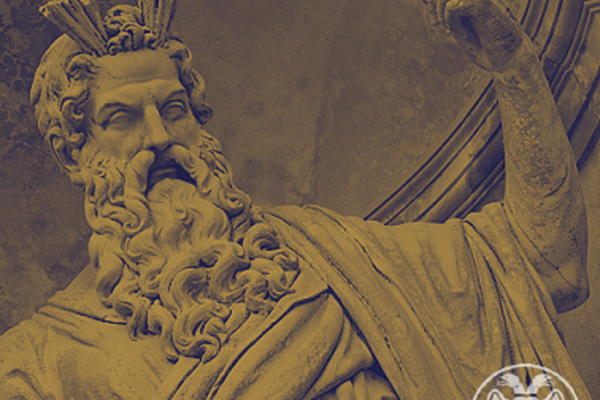The following article was penned by Mike, the editor-in-chief of Imperium Press. You can find their quality assortment of illiberal literature—including their latest release Reflections on Violence—on their website above. For more of Mike’s thoughts on the liberal degradation of the West, you can find him on Substack.
Sometime in the mid-2010s, a chill wind swept over the political landscape. It hadn’t been felt for some time, but if you stuck your finger up into the wind you noticed that it was now blowing distinctly in the direction of nationalism. And not just passport nationalism, but real nationalism, which is to say ethnonationalism. All of a sudden, long-dead ideologies like fascism and National Socialism were suddenly, if not popular, then at least thinkable, and so, a credible threat to liberal ideology.
But why did this rebirth happen when it did? Why not in the early 1990s, or the middle of the 21st century? If you zoom out far enough, all contingencies disappear—there are no accidents in history.1

The late 80s: not yet.
We think of our society as secular, but the truth is that no society is or ever will be truly secular. Every ideology, secular humanist progressivism included, is a stunted theology and is parasitical upon some theological foundation.2 Our modern society is no different. Every society has a mythos, and in the case of the modern West, that mythos is WWII.3 The shape of our modern world was forged in a titanic struggle between the forces of Good and Evil, with Good ultimately triumphing and Evil banished to the lower realms of Tartarus. There are two things you’re allowed to kill in video games without feeling the slightest guilt: zombies and Nazis. This is because neither are fully human.
Mythos is a powerful thing, but it’s not ironclad. As we discussed last time, taboo is the ultimate form of ethics, and one of the most important taboos is blasphemy—this keeps conscience, thus ethics, within its proper bounds by regulating what is and is not thinkable.4 Mythos is an inoculation against blasphemy, and inoculations have to be re-administered every generation. Anti-fascist mythos works like any inoculation: you expose the body to a dead version of a contagion that can’t fight back, so when the body encounters a live version that can fight back, it has learned to fight it ahead of time. But your immune system only works if it recognizes a threat.
Enter the internet.

Pictured: your uncle ca. 1988 — unlikely pioneer of fascism.
The internet has absolutely obliterated our blasphemy immuno-response to all kinds of things. There is no transgression in violence, sex, cruelty, or vulgarity so depraved that you can’t find a worse one somewhere online.
And in the lowest deep a lower deep
Still threatning to devour me opens wide,
To which the Hell I suffer seems a Heav’n.5
You get the idea: the internet is a hellscape of blasphemy against all good taste and there is no lowest circle—it’s snuff porn all the way down.
Clasp an item in your hand. Close your eyes. Sink into your subconscious. You’ll notice the item becomes imperceptible w/in minutes.
This is what normalization feels like. We end up in the upside down because the obscure has become a new normal in the palm of our lives.
— Rachel, Spirited Sparrow (@SpiritedSparr0w) December 9, 2019
There is now a whole generation who has come of age never knowing a time without this hellscape. The thing is, if you wander through a Bosch painting full of transgression for long enough, you start getting numb to it. After enough exposure, you pretty much can’t be offended. Your blasphemy immuno-response doesn’t work, because your disgust mechanism has been blunted by overstimulation.
Scale this up to a whole generation of young people who have never known anything different, and Hitler no more fazes them than does BDSM porn or watching a kid maim himself in a halfpipe accident. And since fascism appeals to something perennial in the social life of human beings, one which can only be suppressed by ruthless and constant stigmatization, fascism’s rebirth was all but guaranteed when Gore Gallery went online in 1994. Fascism just had to wait until the native inhabitants of the Bosch painting reached the age of political activity.

Your neighbourhood after Jews.
The supreme irony here is that it’s in fact the very openness, the very tolerance, the very liberality of the liberal society that has demythologized its own mythos. Liberalism, as a revolt against all tradition, must grant the individual the radical freedom to judge for himself what is right and wrong. It is founded on a negative proposition—freedom—and because no society was ever united in what it was not, when the time comes for liberalism to issue positive commands, it finds that it possesses no moral authority because it has vested that authority in the individual. You alone are the judge of your own fetish, and cannot be wrong. This makes taboo impossible, and when taboo is impossible, the unthinkable soon becomes thinkable.
Enter fascism.

The boys are back in town.
1 As Maistre says, “great men are only circumstances”, meaning that the hand of God is always at work in history.
2 Moldbug’s How Dawkins Got Pwned furnishes a good example of this.
4 Blasphemy is how post-Axial religions keep the force of conscience from undermining them. Note that the more Axial (liberal) a religion is, the more concerned with blasphemy it is—Hinduism, especially the more cultic forms like Mimamsa, has no real concept of blasphemy; Calvinism and especially Puritanism was obsessed with it. For more on the relationship between conscience, ethics, and taboo, see The Hard Problem of Conscience.
5 Paradise Lost, bk. IV, 76–78.











